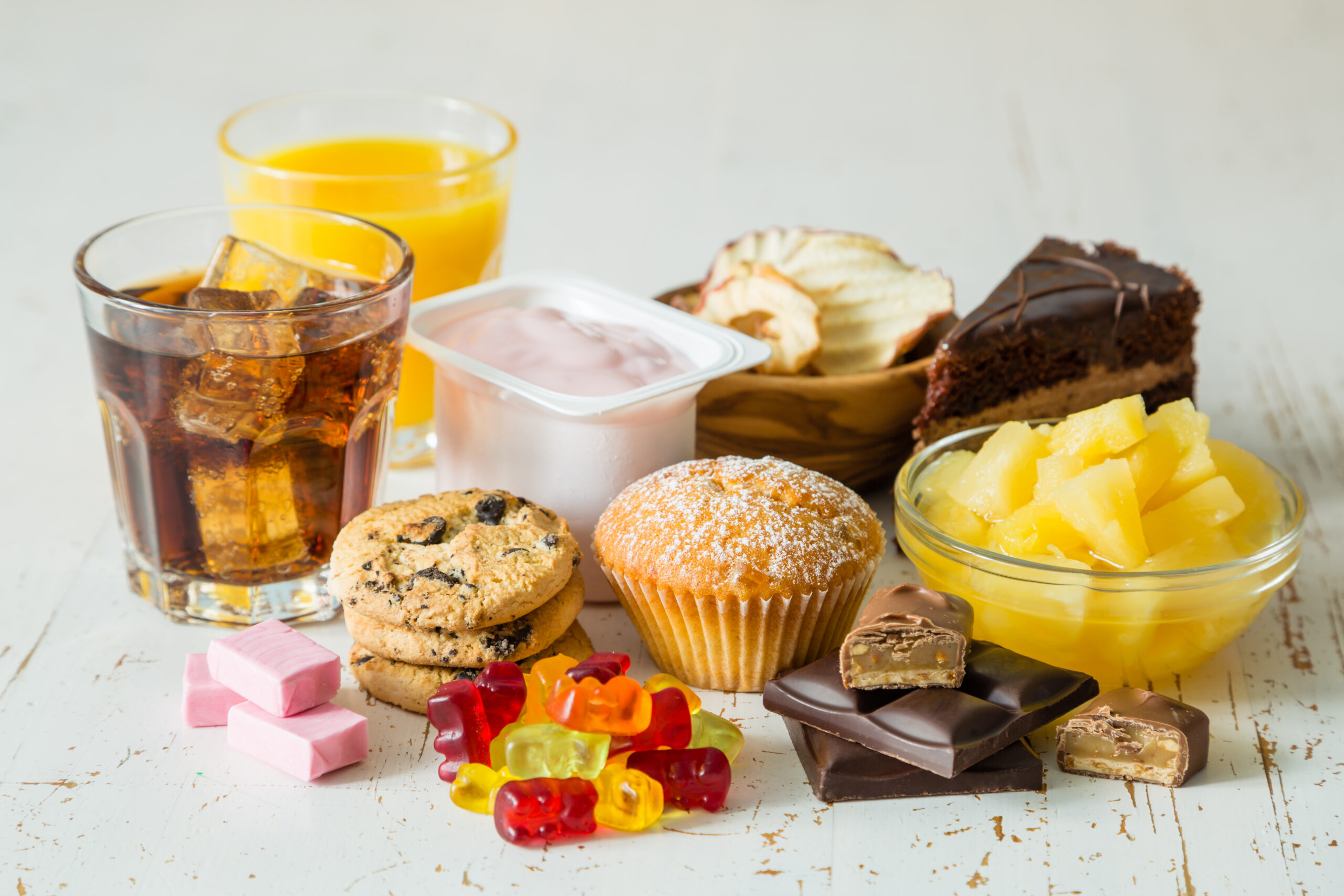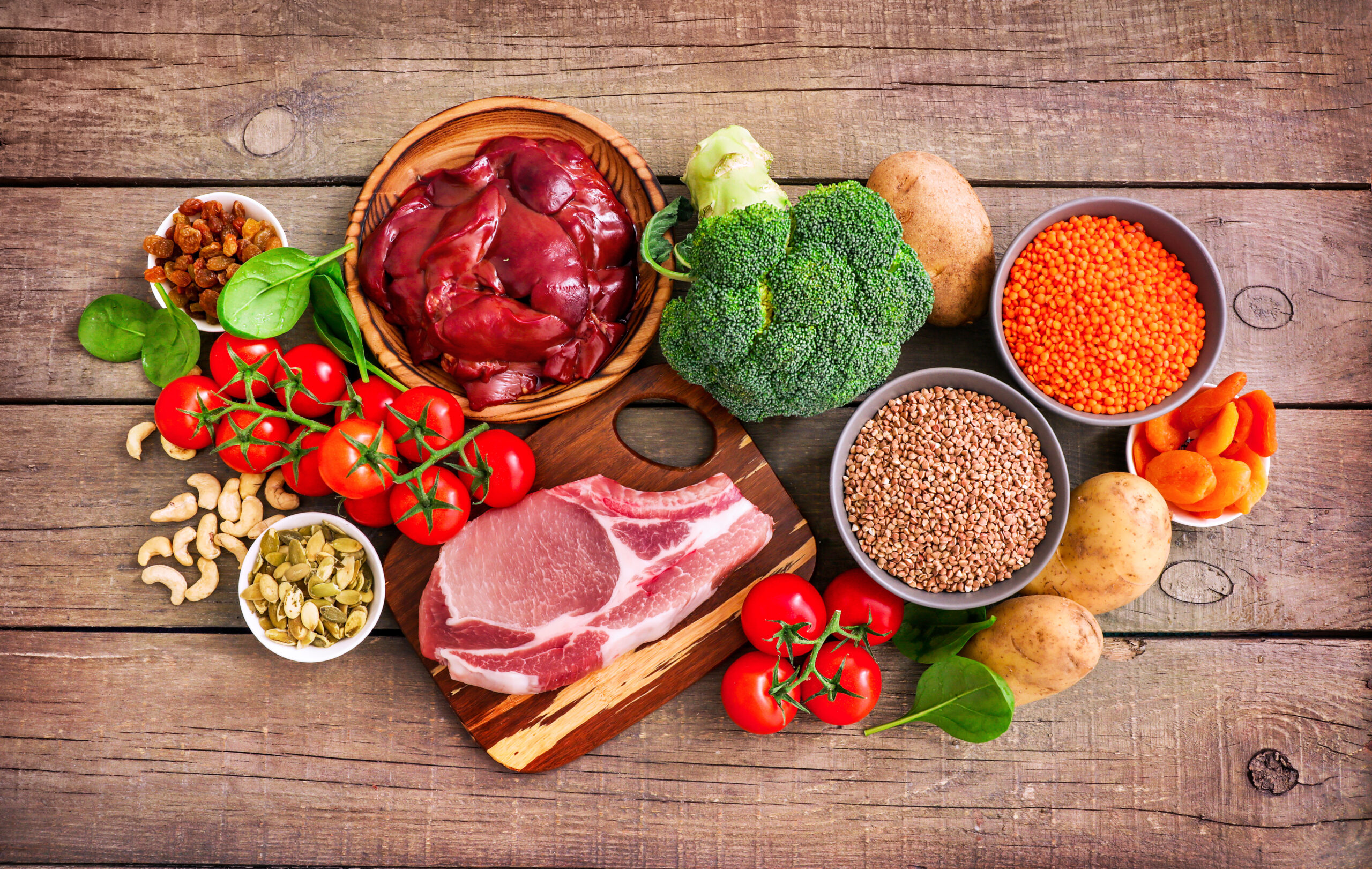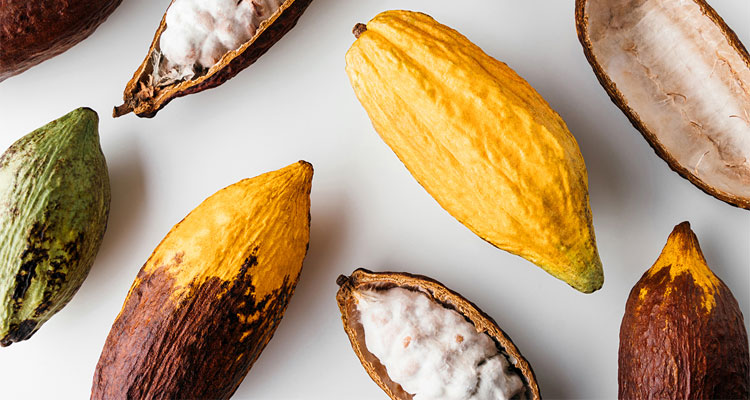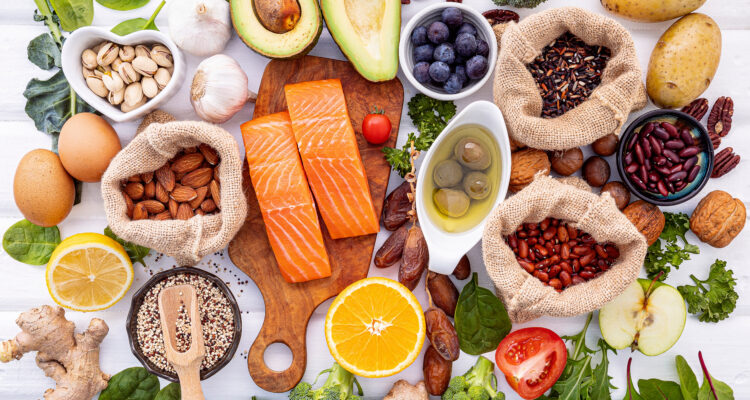If you find yourself frequently feeling low on energy, it might be time to assess your diet. Eating habits can play a crucial role in maintaining your energy and focus. If you’re feeling sluggish regularly, it may pay off to optimise your diet for overall well-being. Here are our top 5 nutritional tips that may increase your energy levels.
1. Stay hydrated:
We hear it all the time but that’s for a good reason – our bodies are nearly 60% water.[1] Maintaining hydration can be key for sustained energy levels. Even mild dehydration can lead to tiredness. Remember to drink more when there’s a higher risk of you dehydrating. For example, if you’re sweating due to hot weather or exercise. [2] The Eatwell Guide recommends drinking 6 to 8 cups or glasses of fluid a day.
If you struggle to keep track, get yourself a reusable water bottle to remind yourself to drink enough throughout the day.
2. Try and limit added sugars:

When you’re sleepy and need a quick fix, it can be tempting to reach for the sugary snacks. Sugary foods might provide a temporary energy boost, but they can also quickly lead to running out of energy and feeling sluggish.
Try to keep sugary snacks for a treat and eat whole fruits instead, which offer natural sugars along with fibre, vitamins, and nutrients. [3]. Here, Habitual explains why blood sugar spikes can be bad for our health.
If you’re wondering which fruits are best for an energy boost, then bananas are the clear winner. They contain a good natural source of sugar and they’re rich in fibre that helps slow the digestion of that sugar. Goji berries, apples, strawberries and oranges can also make the list of fruits that can give you a healthy boost.[4]
3. Consume balanced meals regularly throughout the day:
Eating regular smaller meals can be a great way to maintain your energy levels. Keep fruit, veg and nuts to snack on throughout the day. It may stop you overeating or binging when you do finally come to mealtime.[5]
Make sure your meals combine carbohydrates, proteins, and healthy fats. This balance could create a steady release of energy, preventing sugar crashes. Try and include whole grains, lean proteins, fruits, vegetables, avocados, and nuts into your meals.[6] A well-balanced diet can provide all the energy you need to keep active throughout the day, nutrients you need for growth and repair and help you to stay strong and healthy.[7]
4. Look for high-quality, lean proteins:
Lean protein is a source of protein that is low in saturated fat. Because of this, it’s also low in calories.
But that’s not all! Lean proteins like chicken, fish, tofu, beans, and lentils are essential for energy production and muscle repair. Women’s Health Magazine states that ‘Protein keeps you fuller for longer and plays a key role in supporting many physiological functions, including hormone production, muscle and nerve function.’[8]
So, you can see why it’s an anti fatigue must have!
5. Include iron and B-vitamin rich foods:

One of the most common symptoms of iron deficiency is fatigue. Iron is an essential mineral that’s needed in the red blood cells that carry oxygen around the body. Lean meats, leafy greens, fortified cereals, and legumes can prevent iron deficiency and the associated fatigue. [9]
B vitamins may aid in converting food into energy. Whole grains, eggs, lean meats, leafy greens, and dairy products are rich sources of this vitamin. Consult a healthcare professional about B-complex supplements if you think you might need them. [10].
Vitamin B12 in particular, is needed for your body to make red blood cells and a healthy nervous system. It metabolises carbs, proteins and fats and converts them into energy.
By incorporating these top 5 nutritional tips that may increase your energy levels into your lifestyle, you could enhance your energy levels and maintain vitality throughout the day. Prioritising a balanced diet, hydration, and healthy lifestyle should help you beat those midday slumps.
If you want to know more about nutrition, check out our blog on The Healing Powers of Green for your Mental Health
[1] https://www.mdanderson.org/cancerwise/cancer-treatment-side-effect–dehydration.h00-159305412.html
[2] Dehydration – NHS (www.nhs.uk)
[3] What happens to your brain when you give up sugar – BBC Future
[4] https://opa.org.uk/what-are-the-best-foods-to-eat-for-energy/
[5] The effects of skipping a meal on daily energy intake and diet quality – PMC (nih.gov)
[6] Eating a balanced diet – NHS (www.nhs.uk)
[7] Health benefits of eating well – Food and nutrition | NHS inform
[8] https://www.womenshealthmag.com/uk/food/weight-loss/a707522/lean-protein/
[9] Iron deficiency anaemia – NHS (www.nhs.uk)
[10] Vitamins and minerals – B vitamins and folic acid – NHS (www.nhs.uk)



